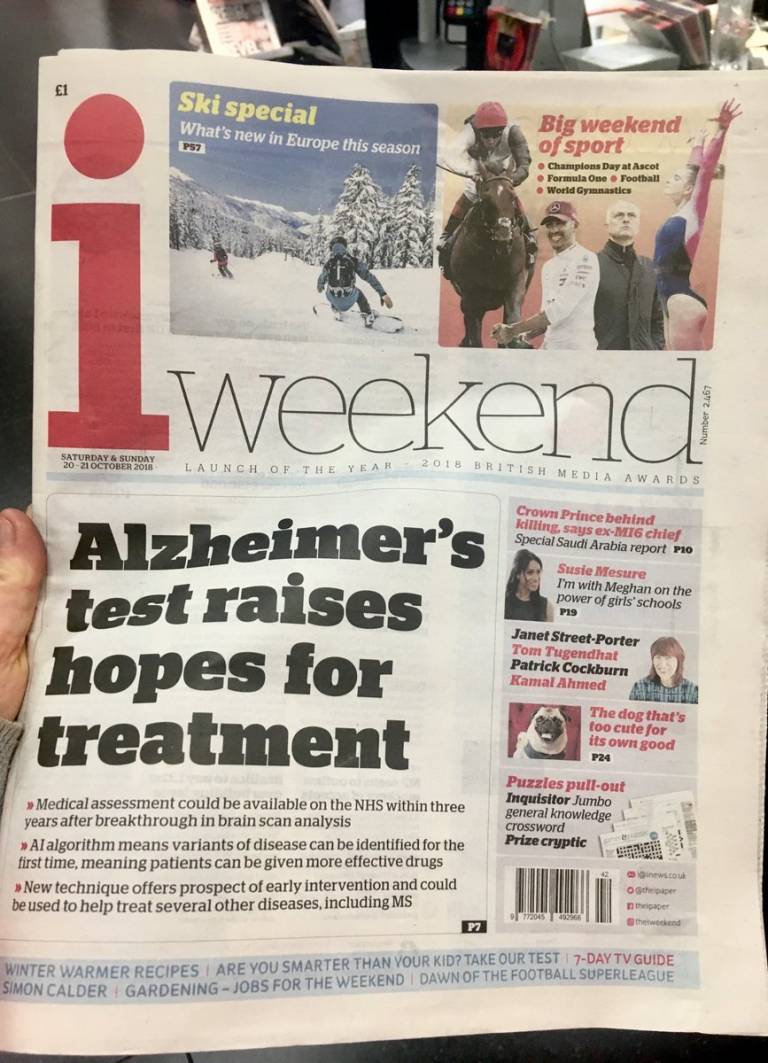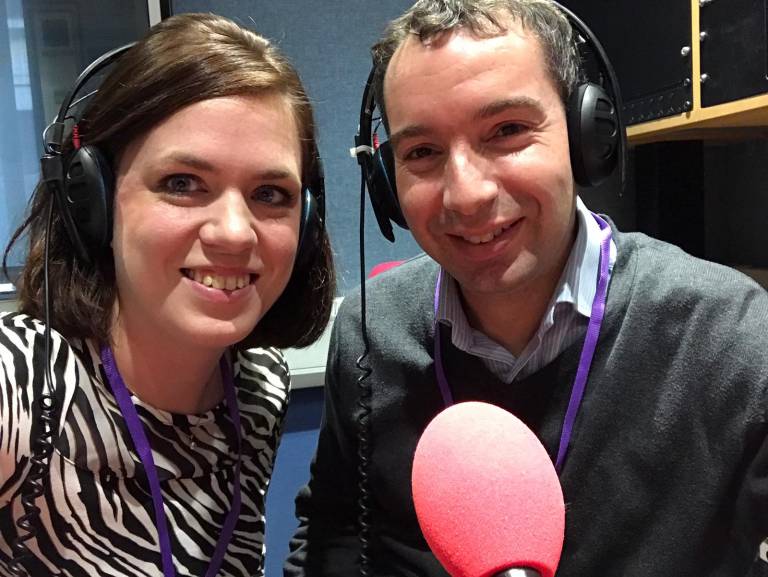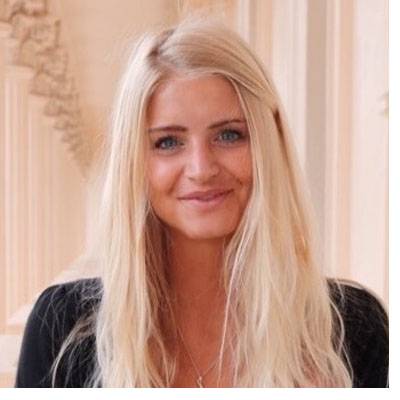We support our researchers to engage with the media and share the innovation taking place at UCL with the world.
Alzheimer's research on cover of the i newspaper

Breakthrough research by Dr Alexandra Young and Institute of Healthcare Engineering board member, Prof Danny Alexander made front-page news in 2018. They developed a machine learning technique capable of uncovering different subtypes of Alzheimer's disease. This research could help improve clinical trials and, later down the line, treatment for Alzheimer's patients.
UCL spin-out Odin Vision featured on BBC Breakfast

Pete Moutney, CEO of Odin Vision, being interviewed on BBC Breakfast.
In April 2019, the team behind UCL spin-out Odin Vision were interviewed by BBC Breakfast, following a £1 million from the UK Space Agency.
The team, which includes researchers from WEISS, have developed an artificial intelligence system that can identify bowel polyps - early signifiers of bowel cancer which are difficult to spot with the naked eye.
Odin Vision will use satellite technology to enable clinics across the globe to access this software on the cloud.
Prof Rebecca Shipley & Dr James Phillips on 'Naked Scientist' podcast

Institute of Healthcare Engineering Director, Rebecca Shipley and board member, James Phillips appeared on the Naked Scientist podcast to discuss their nerve engineering research.
Becky and James are undertaking research to improve the lives of people with peripheral nerve injuries. Using regenerative medicine, they developing gels that help the severed ends of nerves regrow.
UCL research is developing a smartphone app that allows users to check for jaundice in newborn babies simply by taking a picture of the eye. The technology may be an effective, low-cost way to screen for the condition, and have particular impact in sub-Saharan Africa and south Asia where three quarters of global deaths from the condition occur each year. The Independent and Metro are among those who have highlighted the research.
 Close
Close


